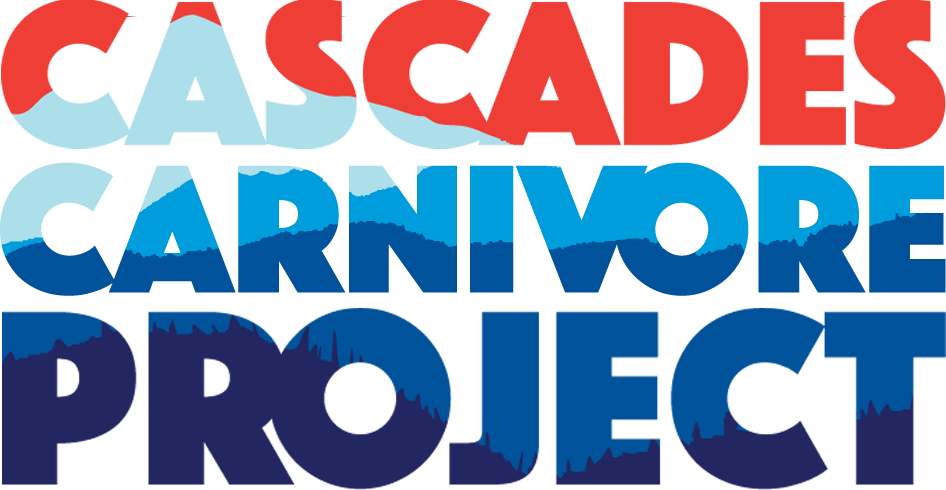Written By: Leslie Brown
Jenny Kordosky remembers something a colleague told her during one particularly wet day of field work in the mountains about a decade ago, when it rained, snowed, sleeted and hailed over the course of a few hours. “She told me, ‘If you’re warm, you’re happy.’”
“I took that into all my wildlife jobs,” Jenny added with a laugh. “It’s one of the best tips I’ve ever gotten.”
Jenny was a member of a Cascades Carnivore Project field crew at the time, where she worked during the fall of 2013 – a short but memorable experience. She recalls the sheer joy of working in the field after years in a lab; pushing herself physically hard and feeling her muscles get stronger; the utter beauty of the places where she worked – her “outdoor office” in the Southern and Central Cascades.
She had no experience in field work when she applied for a position at CCP and found it hard to land that first gig. “My lab work made everyone think I couldn’t handle being outside,” she said. But after sending several emails to Jocelyn Akins, CCP’s founder, she said, “Jocelyn decided to take a leap with me. She told me, ‘I think you can do it.’”
And indeed, she could. Jenny worked in the Indian Heaven Wilderness near Mount Adams, the Icicle Creek area outside of Leavenworth, and the Goat Rocks Wilderness near Randall, checking camera traps and collecting scat in support of CCP’s efforts to determine the ranges and population dynamics of the wolverine and Cascade red fox, both imperiled in Washington state.
She calculated her miles – on average, she traversed 12.5 miles a day through forests and meadows, some of them in alpine areas like the Enchantments in the Central Cascades, where she and her crew got a permit to do a scat survey for two days. “It was awesome,” she said.
Her season with CCP was a foundational experience, and Jenny went on from there to pursue several other opportunities, including working with the U.S.Forest Service on a project that looked at chronic stress levels in fishers in the Sierras near Shaver Lake, Calif. Her work there became the basis of a master’s thesis, and in 2019, she received her master’s in wildlife biology from Utah State University.
She also edited the newsletter produced by the Martes Working Group for two years and for more than three years worked as a biologist for the Washington Department of Fish & Wildlife, where she managed fish hatchery data statewide. In March 2022, in need of greater financial stability, she left field work and returned to the lab: She’s now a field applications scientist for PacBio, a California-based biotech company that manufactures and sells genetic sequencers. A native of Portland, Ore., she now lives in Olympia, Wash
She says she misses her days in the field, but she hasn’t left her love of nature and wildlife behind. Nearly every weekend, she’s hiking, backpacking, or kayaking, and when she gets wet or tired, she remembers her colleague’s words from more than a decade ago: “If you’re warm, you’re happy.” She makes sure she stays warm.

